Wissenschaft und Philosophie |
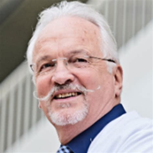
Professor Dr. med. Dr. rer. nat. Ernil Hansen MD PhDErnil Hansen is Professor of Anesthesiology at the University Hospital of Regensburg, Germany, with doctor degrees in Biochemistry (PhD) and Medicine (MD). He is an active member and in the scientific board of the MEG (German Milton-Erickson-Society of Clinical Hypnosis). His main fields of scientific interest are hypnosis-based therapeutic communication, the integration of hypnosis into clinical medicine and medical education, placebo/nocebo and suggestion research, a less traumatic informed consent, trance state monitoring, and awake-craniotomy (brain surgery) without medication. He teaches students, nurses and doctors in communication skills (“Words like Medicine”). Here is the link to an article about Ernil Hansen in the NY Times https://www.nytimes.com/2020/12/15/well/mind/the-healing-power-of-music.html Ernil Hansen has participated as a speaker and discussion partner at our medical pain congresses and will also be present at upcoming events 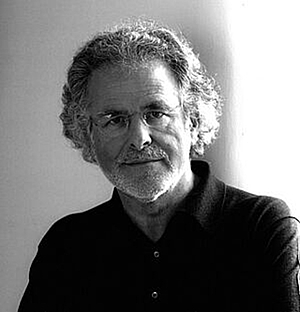
Prof. Dr. med. Dr. h.c. Walter ZieglgänsbergerPhysician and brain researcher - ex. Head of the Department of Clinical Neuropharmacology at the Max Planck Institute of Psychiatry in Munich.
Walter Zieglgänsberger was already researching chronic pain at a time when the term and mechanisms of "pain chronification" were neither known nor accepted. He was instrumental in uncovering the molecular basis of these chronification processes in pain patients, resulting in a fundamentally better understanding of complex, central and peripheral processes, not only in research but also among practitioners. The results of basic research have changed therapy in practice and, conversely, practical implementation in close cooperation with practicing pain physicians has inspired the direction of Zieglgänsberger's research activities. Zieglgänsberger was born in Landshut. He studied human medicine at the LMU in Munich and completed a dissertation at the Max Planck Institute (MPI) for Psychiatry in Munich. He remained associated with this institute for the rest of his life. He habilitated in the subjects of physiology and pharmacology. He conducted research in many countries in Europe and the USA, and from 1984 headed the "Clinical Neuropharmacology" working group at the MPI in Munich.
Born in Landshut, Walter Zieglgänsberger studied medicine at the LMU Munich. After gaining his license to practice medicine, he increasingly devoted himself to basic neurobiological research at the MPI of Psychiatry. He habilitated in the two subjects of physiology and pharmacology and qualified as a specialist in pharmacology and toxicology and as a specialist in clinical pharmacology. Walter Zieglgänsberger conducted research in various laboratories in Europe and the USA (AVD Center for Behavioral Neurobiology, The Salk Institute in La Jolla, California) and was appointed adjunct professor at the LMU Munich. Since his return to Munich, he headed the "Clinical Neuropharmacology" working group at the MPI of Psychiatry. Physician and brain researcher - ex. Head of the Department of Clinical Neuropharmacology at the Max Planck Institute of Psychiatry in Munich.
Walter Zieglgänsberger is a member of high-ranking national and international medical commissions and societies. Extensive lecturing and reviewing activities, e.g. for the DFG, lectures and supervision of doctoral students as a member of the Core Faculty of the Graduate School of Systemic Neuroscience at LMU. Numerous workshops as part of further training for doctors. Member of the Ethics Committee of the Bavarian Medical Association. Member of the Expert Committee according to §1 para.2 Narcotics Act (BtMG) at the Federal Institute for Drugs and Medical Devices, BfArM, Federal Opium Agency. President of the European Winter Conference on Brain Research. Vice President of the scientific association Muscle and Pain. His main areas of work include molecular biological and pharmacological aspects of neurohumoral transmission mechanisms in the central nervous system. Pain and addiction research have been of particular interest from the outset. (see also recent interviews in the ZEIT, FAZ, NZZ, SZ or TV interviews repeatedly on Scobel, BRalpha Forum etc.; several educational films for doctors/medical students). Walter Zieglgänsberger has received numerous awards for his scientific achievements, including the German Advancement Award for Pain Research and Pain Therapy, the Honorary Award of the German Pain Prize - German Advancement Award for Pain Research and Pain Therapy, the Galenus v. Pergamon Prize and the Sertürner Prize. The Technical University of Munich awarded him an honorary doctorate. He is a member of numerous high-ranking medical commissions and societies. 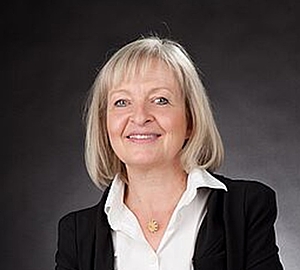
Dr. Cornelia HeeringStudied German language and literature, art history, education and philosophy at the Westfälische Wilhelms-Universität in Münster. Ms. Heering completed her doctorate with a study on "The Culture of the Criminal - Literary Discourses between 1918 and 1933: Ernst Weiß. With an excursus on Rahel Sanzara". Cornelia Heering is Managing Director of the Westermann Gruppe in Braunschweig, where she heads the Westermann educational game publishers. She is also a lecturer at the University of the Arts in Berlin. Her work focuses on the connection between perception and learning, education and play. 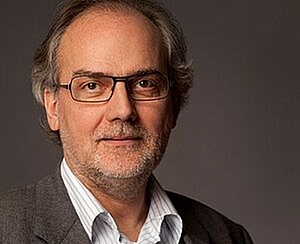
Tom LevoldGraduate social scientist, systemic therapist, supervisor, coach, organizational consultant and publicist. Lives and works in private practice in Cologne. Numerous publications on systemic theory and practice. Editor of "Systemic therapy and counseling - the big textbook" 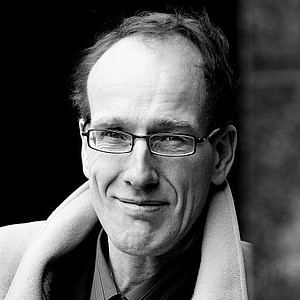
Prof. Dr. Georg Northoff MD PhDNeuroscientist and philosopher Georg Northoff is a German-Canadian physician and philosopher. He is considered an important representative of neurophilosophy. Northoff studied in Hamburg, Essen, Bochum and New York. From 1996, he worked as a senior physician at the Psychiatric University Hospital in Magdeburg. He habilitated in medicine in 1998 and in philosophy in 1999 and has taught at the universities of Magdeburg and Harvard, among others. Since 2009, he has held the Chair of Mind, Brain and Neuroethics at the University of Ottawa, which was created especially for him. His research focuses on functional imaging for the study of emotions, neurobiology, psychiatric disorders, analytical philosophy of mind, neurophilosophy, neuropsychoanalysis and neuroethics. Northoff takes a "relational" or "interactive" approach: According to this, the brain and mind are not to be considered in isolation, but are always in an inner relationship (relation) to the body and the environment. He interprets the self and psychiatric disorders such as depression and schizophrenia in terms of how the relationship between mind, body and environment is organized or altered. The basis of all human mental activity - and thus the condition for the possibility of conscious experience - is not personality or subjective identity, but "self-related processing". Northoff understands this to be the fundamental code, the way in which the brain relates all stimuli to itself, its own body and its own mind. Initially, this self-related processing functions purely neuronally, i.e. as an automatic activity of the brain. It then gradually builds up into ever higher psychological functions: physical, emotional and finally also mental (cognitive) self-awareness. The latter initially enables conscious perception and then also conscious reflection of one's own self. Conceptually and in his neuroscientific experiments, he tries to include the "first-person perspective", the subjective experience of the test subjects. For him, mental phenomena, including the self, are also always culturally shaped. 
Prof. Dr. Martina ArdizziDepartment of Medicine & Surgery - Division of Neuroscience; University of Parma, Italy PhD in Neuroscience, University of Parma. Thesis title: "The effects of repeated traumatic experiences on emotion recognition, facial expressions and autonomic regulation", supervisor Prof. Vittorio Gallese. Master's degree in Neuropsychology and Lifelong Functional Rehabilitation at the Alma Mater Studiorum University of Bologna Bachelor's degree in Behavioral and Social Relations Sciences at the Alma Mater Studiorum University of Bologna, Campus of Cesena, School of Psychology. Psychology studies. Research: Interoception and its functional role in healthy participants and clinical populations (i.e. schizophrenia, anorexia nervosa, PTSD). The neurobiological basis of body-self and self-other, differentiation between healthy populations and the schizophrenia spectrum (i.e. schizotypy, adult schizophrenia patients) Effects of childhood trauma on the neurophysiological basis of intersubjectivity Neurophysiological foundations of aesthetic experience 
Dr. Rebekka ReinhardDr. Rebekka Reinhard received her doctorate in American and French contemporary philosophy ("summa cum laude"). In addition to her work as a freelance philosopher, she worked for twelve years as a philosophical counselor for individuals; she also worked for eight years with inpatients suffering from depression and burnout at the Ludwig Maximilian University Hospital in Munich and with inpatients in oncology. Since 2007, she has been a management coach and a national and international key note speaker for companies. Rebekka Reinhard is editor of the philosophy magazine Hohe Luft , Human and SPIEGEL bestselling author (including "Die Sinn-Diät", "Odysseus oder die Kunst des Irrens" and "Würde Platon Prada tragen?"). Most recently, she published her sixth book title "Kleine Philosophie der Macht (nur für Frauen)" and "Nachdenkzeit 2018: 365 philosophische Denkanstöße". 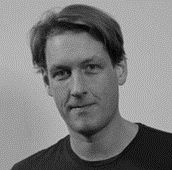
Prof. Dr. Jörg FingerhutJoerg Fingerhut received his PhD in philosophy from Humboldt-Universität zu Berlin (2013) as a researcher in the "Collegium Picture Act & Embodiment," a joint project of art historians and philosophers. He was a member of the "Functions of Consciousness" research group at the Berlin-Brandenburg Academy of the Sciences and Humanities and "Art & Neuroscience Postdoctoral Fellow” at Columbia University (2013), and assistant professor at the University of Stuttgart (2013-2015). He coordinated the research and activities of the Einstein group from 4/2015-12/2019 with a personal focus in research on "Aesthetic Psychology" and "Embodied and Embellished Perception."
He is a philosopher who works theoretically and empirically (X-Phi, EEG, eye-tracking) at the interface of philosophy of mind and cognitive science focusing specifically on the interaction with cultural artifacts such as pictures, film, and architecture. Since 2020 Joerg Fingerhut is a Principal Investigator of the Research Group: Visual Media, Architecture, and Art within the EU Horizon 2020 Consortium Project: ARTIS: (Art and Research on Transformations on Individuals and Societies), where he will explore the cognitive and social effects of Art. The Berlin based part of the project focuses how we explore cities based on an 4EA - embodied, embedded, extended, enactive and affective - cognition approach and how contemporary art engages and transforms us.
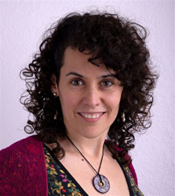
Dr. Ana Alonso SerranoMax Planck Institute for Gravitational Physics (Albert-Einstein-Institute) | AEI PhD
Ana Alonso-Serrano currently works at Max-Planck Institute for Gravitational Physics (Albert Einstein Institute). Ana does research in Quantum Physics, Cosmology and Theoretical Physics. One of her current projects is 'Entropy, entanglement, and information'. 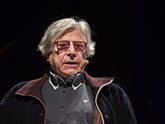
Prof. Dr. Bazon BrockBazon Brock (actually Jürgen Johannes Hermann Brock;[2] * June 2, 1936 in Stolp in Pomerania) is professor emeritus of aesthetics and cultural mediation at the University of Wuppertal, "thinker on duty", "artist without a work" and art theorist. Brock is a representative of the Fluxus movement. 
Prof. Dr. Cristina Borgoni GonçalvesFaculty of Cultural Studies
Cristina Borgoni Gonçalves is a Professor of Epistemology at the University of Bayreuth since 2018. My philosophical interests concern various aspects of individuals’ minds (beliefs, rationality, self-knowledge, fragmentation, and implicit biases) as well as various aspects of interpersonal interaction (testimony, deference to first-person authority, epistemic injustice, and communication). She published extensively in both areas. Cristina Borgoni Gonçalves was previously assistant professor at the University of Graz (2013-2017), postdoc at UCLA with Tyler Burge (2011-2013), and postdoc at UCL with Lucy O’Brien (2010). She wrote her PhD thesis at the University of Granada (2009) with the support of a Spanish National Grant (2005-2009), undertaking two short visits to Sussex University (with Sarah Sawyer and Murali Ramachandran) and UCLA (with Tyler Burge). Areas of Specialization Epistemology and Philosophy of Mind: self-knowledge, first-person authority, beliefs, rationality, cognitive dissonance, fragmentation, implicit bias, epistemic injustice. Areas of Competence Philosophy of Language, Philosophy of Psychology Teaching Supervising bachelor and master theses on traditional topics in Epistemology and Philosophy of Mind as well as on politically oriented topics: conspiracy theory, implicit biases, and epistemic injustice. 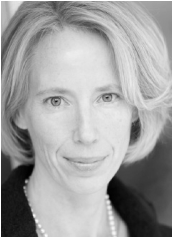
Dr. Franziska WiebelDr. Franziska Wiebel has been working as a speaker, trainer and coach since 2013. In the period 2005 - 2012 she worked as a medical writer (Sanofi-Aventis Deutschland GmbH, Frankfurt/Main) In the years 2002 and 2003 she was a technical editor and translator (English/German). From 1997 - 2000 she worked at the Interfaculty Institute for Cell Biology, Eberhard-Karls-University Tübingen as a research assistant. 1993 - 1997 Postdoctorate (Department of Biosciences, Karolinska Institute, Stockholm, Sweden) 1993 Dissertation (Faculty of Medicine, Ruhr University Bochum) 1989 Diploma (Faculty of Medicine, Ruhr University Bochum) From 1985 to 1989 she studied biology at the Ruhr University Bochum, specializing in molecular biology, animal physiology and immunology She is a certified trainer (German Association for Training and Coaching e.V.); certified Advanced Business Trainer & Coach (Competence on Top); certified organizational developer (Competence on Top); experienced speaker ("Competent Communicator", Toastmasters International); NLP Practitioner (German Association for Neuro-Linguistic Programming); main topics: Resilience, burnout, train the trainer, biological perspective. Science & Research: basic research in molecular biology (gene regulation, signaling and transport pathways, developmental and evolutionary biology, etc.), clinical research and development; documentation and teaching: publications (see list), posters, presentations, research proposals, seminar lectures. Medical writing: clinical study reports, study applications, investigator brochures, approval dossiers, etc. 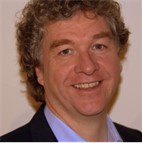
Prof. Dr. med. Karl-Jürgen BärClinics for Psychosomatics and Psychotherapy as well as Geriatric Psychiatry and Psychotherapy at Jena University Hospital (UKJ).
Prof. Dr. Karl-Jürgen Bär is the Director of the Clinics for Psychosomatics and Psychotherapy as well as Geriatric Psychiatry and Psychotherapy at Jena University Hospital (UKJ). Clinical focus: Sports psychosomatics, pain treatment, McLean Award of the American Society of Psychosomatic Medicine 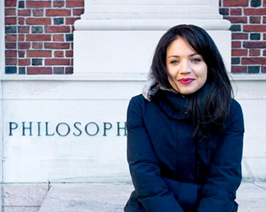
Prof. Dr. Elvira Di Bona PhDUniversity of Turin, Department of Philosophy and Educational Sciences, Faculty Member
Main research interests: philosophy of mind and aesthetics, also working on various topics in philosophy of language and philosophy of music. She is currently focusing on perception and its connection to memory. Extensive publications on auditory perception, the metaphysics of sound and the content of perceptual experience.
Background: Assistant professor of Philosophy of Mind, I spent more than four and a half years as a postdoctoral fellow at the Polonsky Academy of the Van Leer Jerusalem Institute (Israel). Previously. Ppostdoctoral positions at the Italian Academy of Columbia University (NYC), the Freie Universität Berlin (sponsored by DAAD) and the University of Turin (sponsored by the Franco and Marilisa Caligara Foundation). PhD in Philosophy and Cognitive Science from the University Vita-Salute San Raffaele (Milan) and Institut Jean Nicod (École des Hautes Études en Sciences Sociales, Paris). During her doctorate, Elvira Di Bona spent periods of research at New York University, as a Fulbright Scholar, and at the University of Sydney, as an ARIA (Association for Research between Italy and Australasia) Scholar.
She completed the "Corso di Alto Perfezionamento in Studi Musicali - Solo Violin Performance" at the Accademia Nazionale di Santa Cecilia (Rome) in 2008 and she performed in classical and jazz concerts - in solo performances, with chamber and symphony orchestras - in the United States, the United Kingdom, Italy, Germany, France, Romania, Croatia and Venezuela. |







